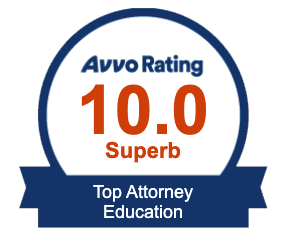In the last post, I outlined the two primary remedies for violation of the IDEA; Compensatory Education and Reimbursement. The IDEA provides that a court shall grant such relief as the court determines is appropriate in a due process hearing or appeal. 20 U.S.C. 1415(i)(2)(C). The IDEA provision permits lower courts and administrative hearing officers or judges to award reimbursement of expenses. The United States Supreme Court in Burlington School Committee v. Department of Education held that to grant reimbursement of expenses when parents unilaterally remove their child from public school to a private placement, the court must find the school district failed to offer the child a free appropriate public education or placement and that services and placement obtained by the parents was appropriate.
Procedural Requirements for Reimbursement
However, before parents can request for reimbursement of expenses for their child placed in private school., they must show: at the most recent IEP meeting the parents attended prior to removal of the child from public school, the parents informed the IEP team that they were rejecting the placement proposed by the school district to provide a free appropriate public education to their child. This means the parents must state their concerns to the IEP team about the inappropriateness of their child’s proposed placement and they expressed their intent to enroll the child in a private school at public expense. The failure of the parents to comply with the is requirement can result in the denial of reimbursement or the reduction of the amount of reimbursement. 20 U.S.C. 1412(10)(C)(iii). In the alternative, the parents shall ten (10) days prior to the removal of the child from public school provide written notice to the school district of their concerns to the IEP team about the inappropriateness of their child’s proposed placement and they expressed their intent to enroll the child in a private school at public expense. The failure of the parents to comply with the is requirement can result in the denial of reimbursement or the reduction of the amount of reimbursement. 20 U.S.C. 1412(10)(C)(iii). If, however, prior to the parents’ removal of the child from public school, the school district informs the parents of its intent to evaluate the child, and the parents refuse to make the child available for such evaluation, the court may also deny or reduce the amount of reimbursement of expenses.
There are a few exceptions to these rules. If the parents fail to provide notice at an IEP or by written notice of their intent to enroll their child in a private placement at public expense, the court may not deny or reduce reimbursement of expenses provided that: the school prevented the parents from providing such notice; the parent had not received notice of their rights under the IDEA; or the parents compliance with the requirements for unilateral withdrawal of their child would likely result in serious emotional harm to the child.
What If the Parents Cannot Afford Private Placement?
The obvious question is what if parents cannot afford to withdraw their child with a disability from public school and then place the child in private school? What can be done? Most parents do not have the funds or resources to unilaterally remove their child from public school and place the child in private school because the public school is not providing an appropriate placement and/or services. In Georgia, when certain procedural requirements are met, parent may remove their child with a disability from public school and ask the State Department of Education for SB 10 funds to pay for or supplement payment for private placement. The use of SB 10 funds – for some parents – has eased to some extent the financial burden on parents to be able to place their child in a private placement. Some parents have used SB 10 funds to enroll their child in a religious school. Other parents have enrolled their child in one of the many private schools that started up as a result of SB 10 funds. One important note, however. If a parent utilizes SB 10 funds to enroll their child with disability in a private placement, they waive their right to special education procedural safeguards and substantive rights. This means the private placement or school is not required to provide special education and related services to the child. Of course, some private schools specialize in providing special education and related services to children with disabilities enrolled in their school. But if the parent accepts SB 10 in enrolling their child in a private placement, the parent may not utilize any of the procedural and substantive rights afforded parents of children with disabilities under the IDEA.
For those parents that have no choice and must continue to enroll their child in public school even though the school district is not providing an appropriate placement and/or services to the child, there is a remedy. The parents may request reimbursement of expenses for out-of-pocket expenses incurred for the child. For example, if the child is required to receive speech and language therapy for two hours a week and the school is not providing these services, the parent may hire an independent speech and language therapist to provide such services. The parents can request reimbursement of expenses for those services by either filing a due process complaint, filing a State complaint, requesting mediation, or otherwise informally resolving this dispute with the school district. The parent may also seek compensatory education for the denial of a free appropriate public education for their child, but you will have to wait for the next post for information on this IDEA remedy.

